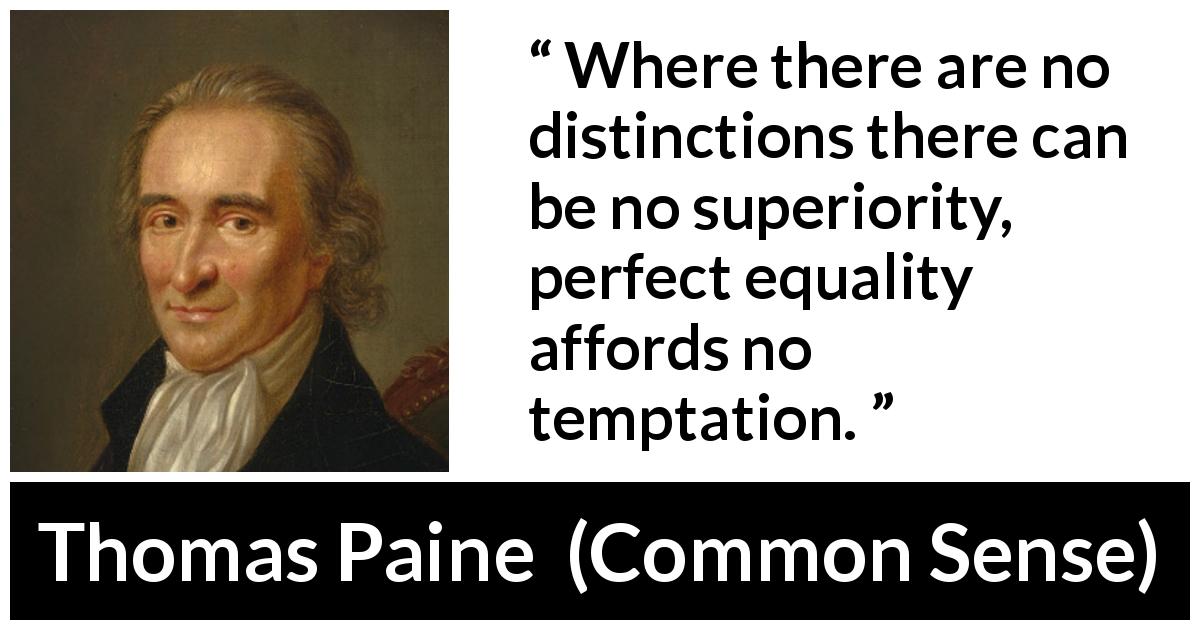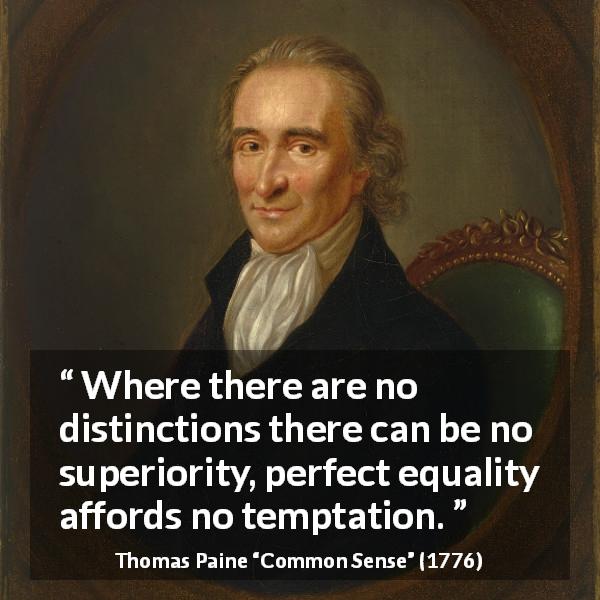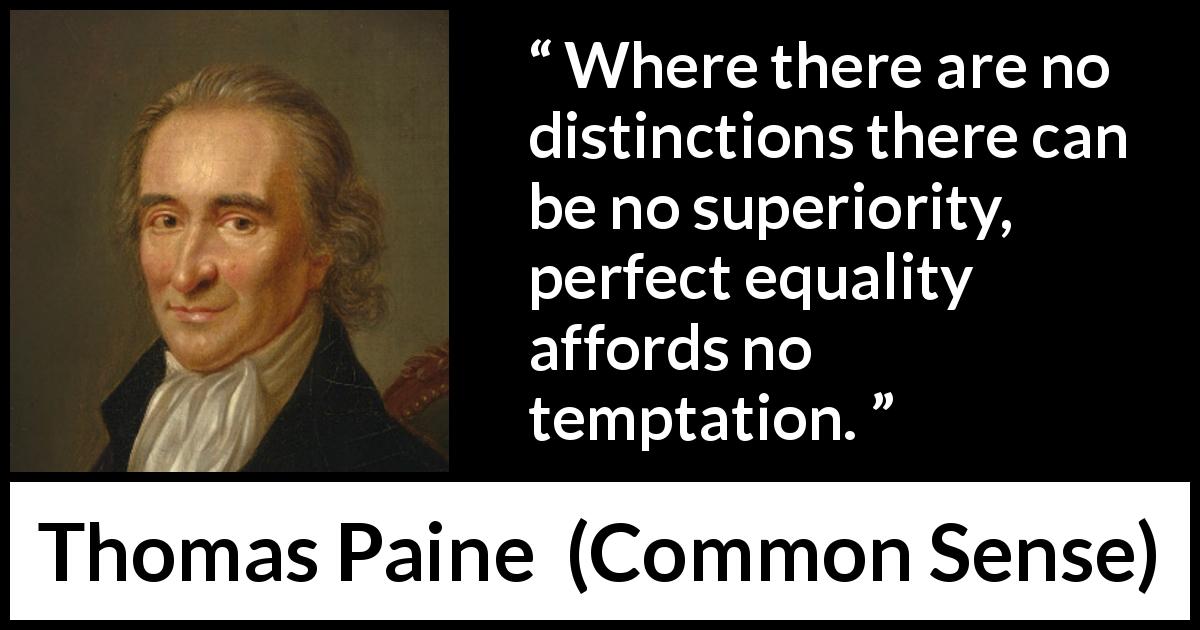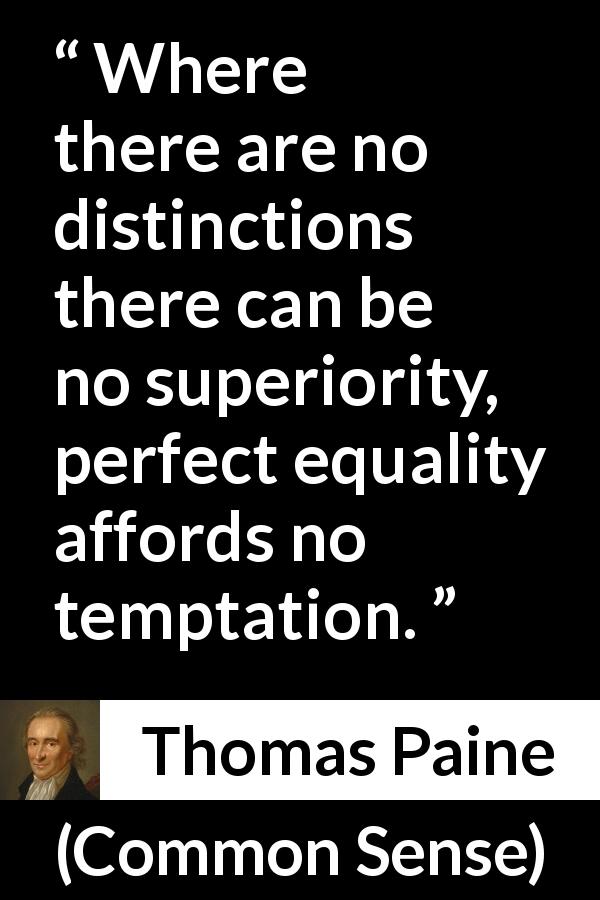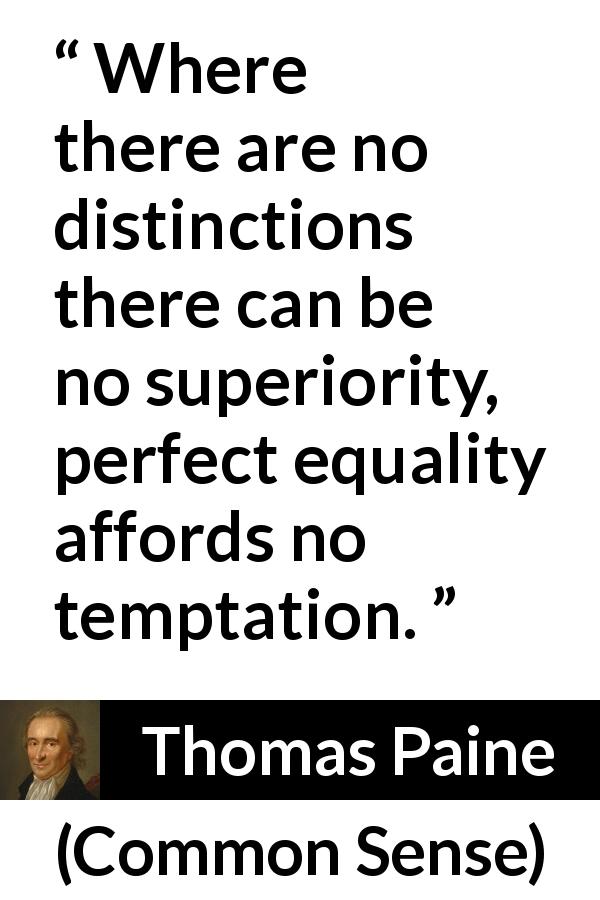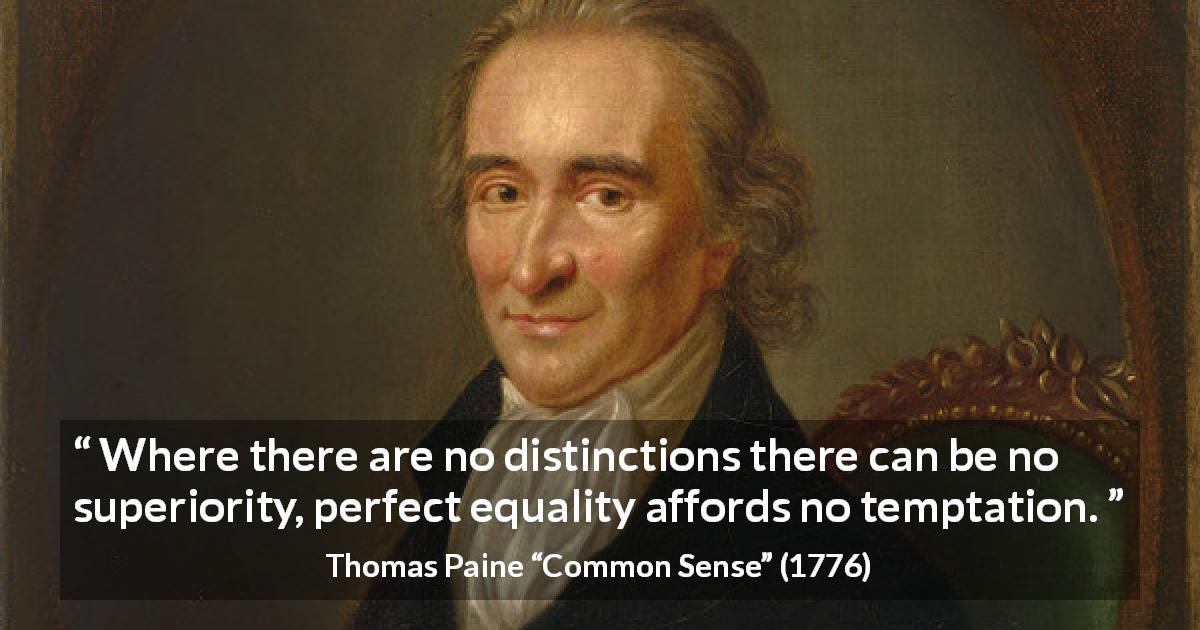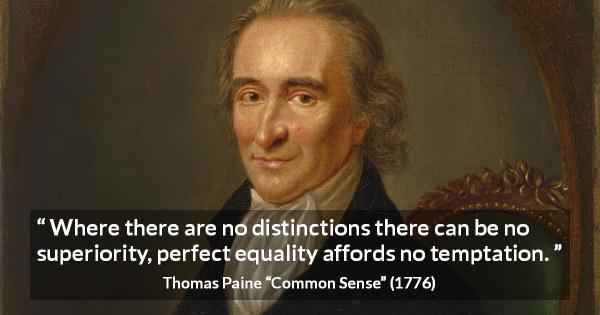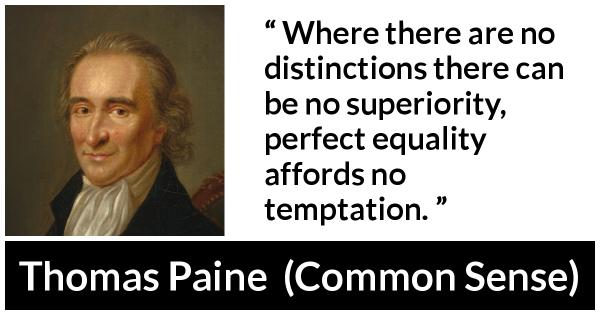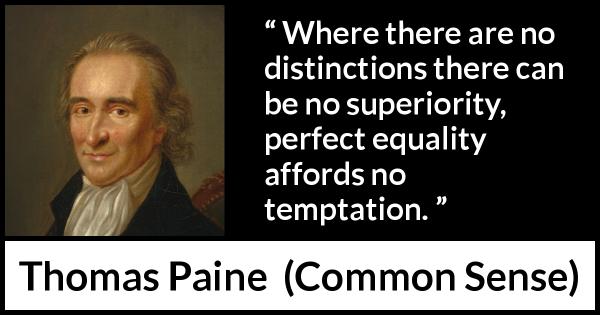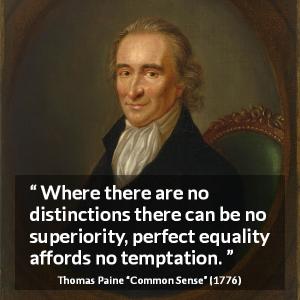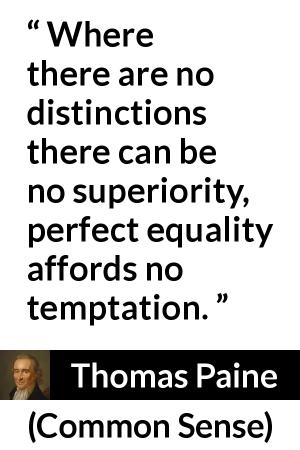“ Where there are no distinctions there can be no superiority, perfect equality affords no temptation. ”
Thomas Paine, Common Sense (1776). copy citation
| Author | Thomas Paine |
|---|---|
| Source | Common Sense |
| Topic | equality temptation distinction |
| Date | 1776 |
| Language | English |
| Reference | |
| Note | |
| Weblink | http://www.gutenberg.org/files/147/147-h/147-h.htm |
Context
“94 The colonies have manifested such a spirit of good order and obedience to continental government, as is sufficient to make every reasonable person easy and happy on that head. No man can assign the least pretence for his fears, on any other grounds, than such as are truly childish and ridiculous, viz. that one colony will be striving for superiority over another.
95 Where there are no distinctions there can be no superiority, perfect equality affords no temptation. The republics of Europe are all (and we may say always) in peace. Holland and Swisserland are without wars, foreign or domestic: Monarchical governments, it is true, are never long at rest; the crown itself is a temptation to enterprizing ruffians at home; and that degree of pride and insolence ever attendant on regal authority, swells into a rupture with foreign powers, in instances, where a republican government, by being formed on more natural principles, would negociate the mistake.” source
95 Where there are no distinctions there can be no superiority, perfect equality affords no temptation. The republics of Europe are all (and we may say always) in peace. Holland and Swisserland are without wars, foreign or domestic: Monarchical governments, it is true, are never long at rest; the crown itself is a temptation to enterprizing ruffians at home; and that degree of pride and insolence ever attendant on regal authority, swells into a rupture with foreign powers, in instances, where a republican government, by being formed on more natural principles, would negociate the mistake.” source
